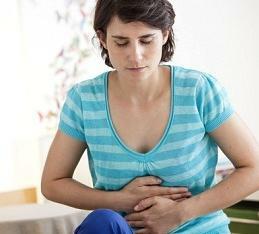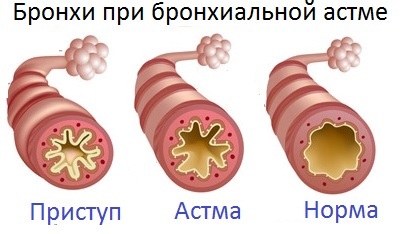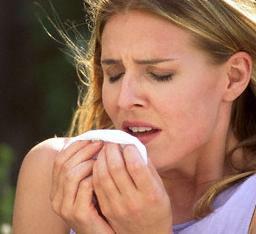 In the cold season, in addition to colds and respiratory diseases, viral gastroenterocolitis, called in the common parlance of intestinal flu, sometimes they are also called abdominal or gastric flu.
In the cold season, in addition to colds and respiratory diseases, viral gastroenterocolitis, called in the common parlance of intestinal flu, sometimes they are also called abdominal or gastric flu.
Such a name they received because the patients simultaneously show signs of influenza and gastrointestinal disorders.
Gastrointestinal influenza u arises from the ingestion of rotavirus into the human body. Everyone can get sick of this disease - from the baby to the old man, but most often the infection is diagnosed in children aged 6 to 12 months.
According to statistics, 40 percent of all intestinal infections in children account for the share of rotavirus. Adults also become infected during the care of sick children. Intestinal flu has become widespread in the US, and then it has already reached European countries.
How can I get infected?
Why does gastric flu occur, and what is it? The virus penetrates the human body through the mucous membrane of the gastrointestinal tract.
- One type of transmission is food. That is, the infection enters the body through unwashed fruits, vegetables, substandard dairy products.
- The second way of infection is airborne. With loud talk, sneezing, coughing, germs from a sick person spread in the air.
- It is not excluded and transmission of gastric flu by a contact-household way. Therefore, during the outbreak of the disease, it is recommended that you use your own utensils and refuse from the services of a common dining room.
The intestinal virus is destroyed only by concentrated chlorine-containing disinfectants.
Symptoms of gastric flu in adults
 The average duration of the incubation period of gastric flu virus viral etiology is 5 days, but can be observed and more short term, however, with all variants of the course of the incubation period, there are no clinical manifestations of the disease.
The average duration of the incubation period of gastric flu virus viral etiology is 5 days, but can be observed and more short term, however, with all variants of the course of the incubation period, there are no clinical manifestations of the disease.
Characteristicperiods of illness:
- The incubation period lasts 2-5 days;
- acute period - up to 7 days;
- convalescence or convalescence - up to 5 days.
In the case of gastric flu, the symptoms are the following:
- After the incubation period, body temperature rises sharply, signs of a febrile syndrome appear, vomiting and diarrhea begin. Allocations may change color, sometimes blood streaks appear in the stool.
- Abdominal pain. A person with rotavirus infection experiences spasmodic pains in the abdomen of different intensity.
- Runny nose, sore throat, sneezing. Often intestinal flu develops immediately before the outbreak of traditional influenza and can be accompanied by common signs of a viral infection.
- Loss of appetite, weakness. For 7-10 days of illness the human body can be severely depleted, facial features sharpen, blood pressure may drop and signs of mild anemia may appear.
Rotavirus infection is easily confused with ordinary intestinal poisoning, so for an accurate diagnosis, you should contact a specialist. Symptoms of intestinal flu pose a danger to human health and life.
Prevention
To prevent infection with viruses and increase the body's immune defenses, it is important to observe simple hygiene rules: wash thoroughly hands, eat only boiled water, well-thermally processed dishes and only pasteurized dairy products.
When swimming in natural water, do not swallow water. If a virus infection is detected, contact with other people should be minimized, and household items and premises should be thoroughly disinfected.
Intestinal flu is an infectious disease that is very acute. Gastroenteritis has a vivid symptomatology, however its signs are characteristic for other serious diseases, therefore for the diagnosis and treatment of ailment it is necessary to seek professional help. It is much easier to prevent infection with rotavirus, for which you need to follow the basic rules of personal hygiene and minimize contact with the sick person.
Treatment of gastric flu
In the case of gastric flu, a specific treatment has not been developed to date. Therefore, treatment of gastric flu in adults is purely symptomatic.
The main thing is to get rid of the organism intoxication as soon as possible, adjust the water and salt balance to normal, it can be disturbed during vomiting, diarrhea. A person should not be dehydrated, it is necessary to remove all toxins, normalize the work of the heart, strengthen the vascular walls, prevent the bacterial infection from developing.
We must endure an acute period, despite the unpleasant symptoms. In just 5-7 days, everything will return to normal.
- At the onset of diarrhea and vomiting, you should restore the water and salt balance - to do this, dilute the pack of Regidron in a liter of warm water and drink 1-2 small sips.
- Take sorbents, for example, activated charcoal, Sorbex, Enterosgel or others two times a day until the elimination of gastrointestinal symptoms.
- If necessary, use antipyretic agents to normalize body temperature.
- Also help digestive enzymes - treatment with Mezim forte, Creon, Pancreatin.
- After they stopped the inflammatory process, you need to take care of the intestinal microflora. In this situation, you need to take probiotics for the intestines - Bifiform, Lineks, Hilak forte.
The use of antibiotics for intestinal flu is meaningless, since the infection has a viral and not a bacterial nature.
Nutrition and Diet
To speed up treatment with rotavirus infection, try to maintain a sparing regimen. From the diet should be excluded:
- roast;
- fatty foods;
- dairy products;
- juices and drinks with gas.
Of products with gastric flu, you should eat dried bread, pasta, water-welded cereals (semolina, rice, buckwheat), chicken eggs (boiled in steep, no more than 1 egg a day).
Gradually, the diet of the patient can include low-fat soups, stewed without salt and spices, vegetables, mashed potatoes, wiped cottage cheese, fresh fruit and berries.

How to choose probiotics for the intestine: a list of drugs.

Effective and inexpensive cough syrups for children and adults.

Modern non-steroidal anti-inflammatory drugs.

Review of tablets from the increased pressure of the new generation.
 Antiviral drugs are inexpensive and effective.
Antiviral drugs are inexpensive and effective.



